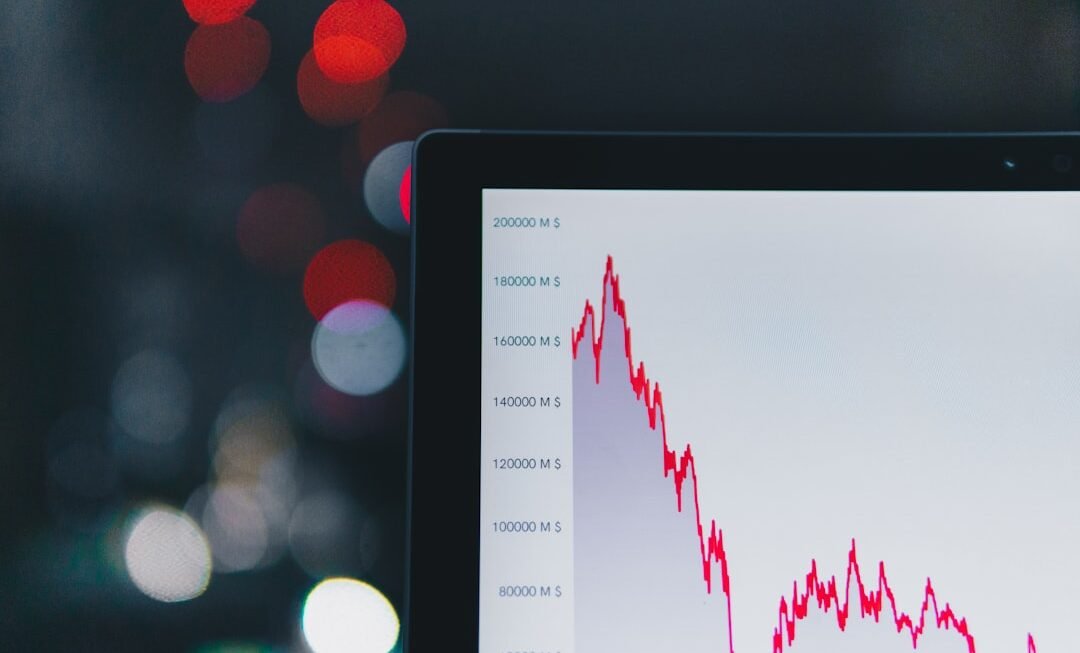Online stock trading has revolutionized the way individuals engage with financial markets. It allows investors to buy and sell shares of publicly traded companies through digital platforms, eliminating the need for traditional brokerage services. This democratization of trading has made it accessible to a broader audience, enabling anyone with an internet connection to participate in the stock market.
Understanding the fundamentals of online trading is crucial for anyone looking to navigate this complex landscape successfully. At its core, online stock trading involves the exchange of ownership in companies through the buying and selling of stocks. Investors can place trades in real-time, monitor market trends, and access a wealth of information at their fingertips.
However, it is essential to grasp key concepts such as market orders, limit orders, and the significance of bid-ask spreads. Additionally, understanding how stock prices are influenced by various factors, including economic indicators, company performance, and market sentiment, is vital for making informed trading decisions. As individuals embark on their trading journey, a solid foundation in these basics will serve as a stepping stone toward more advanced strategies.
Choosing the Right Online Trading Platform
Choosing the Right Online Trading Platform
Selecting the right online trading platform is a crucial step for any aspiring trader. With numerous options available, each offering unique features and tools, it can be overwhelming to determine which platform best suits one’s needs. Factors such as user interface, fees, available assets, and customer support should be carefully considered.
Key Factors to Consider
A user-friendly interface can significantly enhance the trading experience, allowing traders to execute orders swiftly and efficiently. Moreover, understanding the fee structure is essential for long-term profitability. Some platforms charge commissions on trades, while others may offer commission-free trading but impose fees on other services.
Asset Variety and Market Access
Traders should also evaluate the range of assets available for trading, including stocks, ETFs, options, and cryptocurrencies. A platform that provides access to diverse markets can offer more opportunities for investment.
Making an Informed Decision
Ultimately, choosing the right platform requires thorough research and consideration of personal trading goals and preferences. By carefully evaluating these factors, traders can make an informed decision and select a platform that meets their unique needs and helps them achieve their trading objectives.
Developing a Solid Trading Strategy
A well-defined trading strategy is paramount for success in online stock trading. It serves as a roadmap that guides traders in making informed decisions based on their financial goals and risk tolerance. A solid strategy typically encompasses various elements, including entry and exit points, position sizing, and criteria for selecting stocks.
By establishing clear guidelines, traders can minimize emotional decision-making and maintain discipline in their approach. One effective strategy is to adopt a combination of fundamental and technical analysis. Fundamental analysis involves evaluating a company’s financial health through its earnings reports, balance sheets, and market position.
In contrast, technical analysis focuses on price movements and patterns using charts and indicators. By integrating both approaches, traders can gain a comprehensive understanding of potential investments and make more informed decisions. Additionally, backtesting strategies against historical data can provide valuable insights into their effectiveness before applying them in real-time trading scenarios.
Managing Risk and Setting Realistic Goals
Risk management is an integral aspect of online stock trading that cannot be overlooked. Every trader faces the possibility of losses; therefore, implementing strategies to mitigate risk is essential for long-term success. One common approach is to use stop-loss orders, which automatically sell a stock when it reaches a predetermined price.
This tool helps protect capital by limiting potential losses on individual trades. Setting realistic goals is equally important in managing risk. Traders should establish clear objectives based on their financial situation and risk tolerance.
Unrealistic expectations can lead to impulsive decisions and emotional trading, which often result in losses. By setting achievable goals and regularly reviewing progress, traders can maintain focus and motivation while navigating the ups and downs of the market.
Staying Informed and Doing Research
In the fast-paced world of online stock trading, staying informed is crucial for making sound investment decisions. The financial landscape is constantly evolving due to economic changes, geopolitical events, and technological advancements. Therefore, traders must actively seek out information from reliable sources such as financial news outlets, market analysis reports, and expert opinions.
Conducting thorough research before making trades can significantly enhance a trader’s chances of success. This includes analyzing company fundamentals, understanding industry trends, and keeping an eye on macroeconomic indicators that may impact stock prices. Additionally, utilizing tools such as earnings calendars and economic reports can help traders anticipate market movements and adjust their strategies accordingly.
By prioritizing research and staying informed, traders can position themselves to capitalize on opportunities as they arise.
Practicing Patience and Discipline
Resisting Impulsive Decisions
The stock market can be unpredictable, with prices fluctuating rapidly based on various factors. It is essential for traders to resist the urge to react impulsively to short-term market movements or news headlines.
Staying Focused on Long-Term Goals
Instead, they should adhere to their established trading strategies and remain focused on their long-term goals. Discipline also plays a vital role in maintaining consistency in trading practices. Traders should develop routines that include regular reviews of their performance and adherence to risk management protocols.
Navigating the Market with Confidence
By sticking to their plans and avoiding emotional decision-making, traders can navigate the market with greater confidence and resilience. Ultimately, practicing patience and discipline can lead to more thoughtful decision-making and improved overall performance in online stock trading.
Utilizing Technical Analysis and Tools
Technical analysis is a powerful tool that traders can leverage to make informed decisions based on historical price movements and patterns. By studying charts and utilizing various indicators such as moving averages, Relative Strength Index (RSI), and Bollinger Bands, traders can identify potential entry and exit points for their trades. This analytical approach allows them to gauge market sentiment and make predictions about future price movements.
In addition to traditional charting techniques, many online trading platforms offer advanced tools that enhance technical analysis capabilities. Features such as customizable charts, real-time data feeds, and algorithmic trading options enable traders to refine their strategies further. By incorporating these tools into their trading routines, individuals can gain deeper insights into market trends and improve their decision-making processes.
Learning from Mistakes and Seeking Continuous Improvement
Mistakes are an inevitable part of the trading journey; however, they can also serve as valuable learning opportunities. Successful traders understand that analyzing past trades—both profitable and unprofitable—can provide insights into what works and what doesn’t. By reflecting on their decisions and identifying patterns in their trading behavior, individuals can make adjustments that lead to improved performance over time.
Continuous improvement is essential in the ever-evolving world of online stock trading. Markets change rapidly due to new technologies, regulations, and economic conditions; therefore, traders must remain adaptable and open to learning new strategies or techniques. Engaging with educational resources such as webinars, online courses, or trading communities can foster growth and development in one’s trading skills.
By embracing a mindset of continuous improvement, traders can enhance their knowledge base and increase their chances of long-term success in the stock market. In conclusion, online stock trading offers exciting opportunities for individuals willing to invest time in understanding its intricacies. From grasping the basics to developing robust strategies and managing risks effectively, each aspect plays a crucial role in achieving success in this dynamic environment.
By staying informed, practicing patience and discipline, utilizing technical analysis tools, and learning from past experiences, traders can navigate the complexities of the market with confidence and resilience. Ultimately, those who commit to continuous improvement will find themselves better equipped to thrive in the world of online stock trading.
FAQs
What is online stock trading?
Online stock trading is the process of buying and selling stocks through an online platform. This allows investors to trade stocks from the convenience of their own computer or mobile device.
How does online stock trading work?
Online stock trading works by investors opening an account with an online brokerage firm, depositing funds into their account, and then using the brokerage’s online platform to place buy and sell orders for stocks.
What are the benefits of online stock trading?
Some benefits of online stock trading include lower fees and commissions compared to traditional brokerage firms, the ability to trade stocks from anywhere with an internet connection, and access to a wide range of investment tools and resources.
What are the risks of online stock trading?
Risks of online stock trading include market volatility, the potential for financial loss, and the risk of cyber security threats such as hacking or identity theft.
What do I need to start online stock trading?
To start online stock trading, you will need to open an account with an online brokerage firm, deposit funds into your account, and have access to a computer or mobile device with an internet connection.
Are there any regulations or requirements for online stock trading?
Yes, online stock trading is regulated by government agencies such as the Securities and Exchange Commission (SEC) and the Financial Industry Regulatory Authority (FINRA). Additionally, investors may need to meet certain requirements such as minimum account balances or age restrictions.












